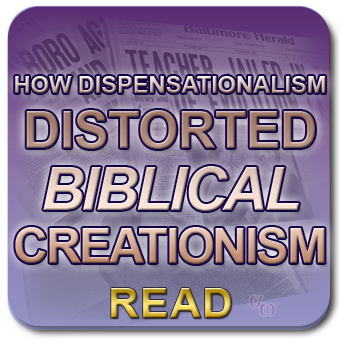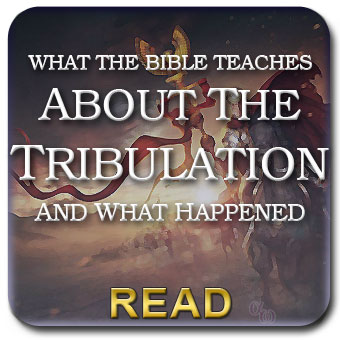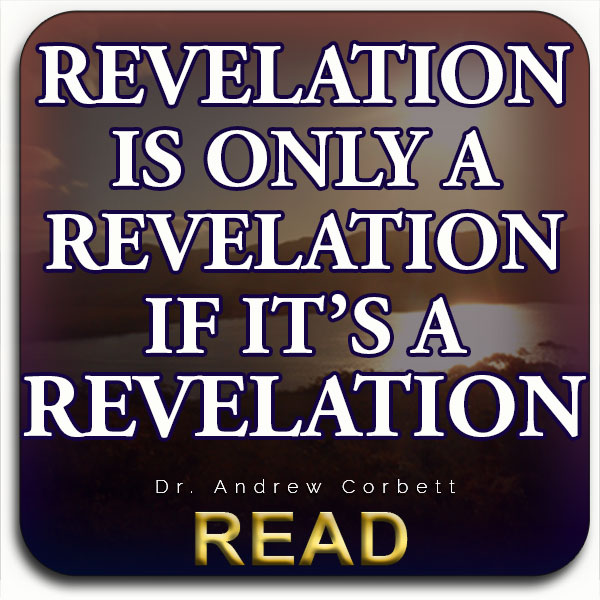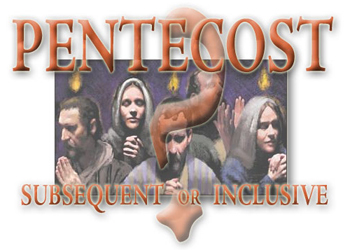
by Andrew Corbett | Mar 12, 2018 | Theology |
The Bible is emphatic that God is the Creator. It’s entire message of redemption is founded upon this truth. If God is not Creator then the Scriptures have no authority at all – let alone credibility. Similarly, if the entire human race is not descended from one man: Adam, then its revelation about man’s fallenness is without basis.
This opening account in the Bible of the Creation Story must be factual for Scripture, or Christianity for that matter, to have any credence. In the USA in the early part of the 20th century this issue became the basis for a court case where a High School Science teacher was charged with teaching something other than this (evolution) in what famously became known as the Scopes’ Monkey Trial. Curiously, Christians were called to defend their position rather than Mr Scopes his, and only one school of thought was presented during that trial – Dispensational Fundamentalism, which claims that the six creation days were consecutive 24 hour periods, and that all of this took place just 6,000 years ago. This court case was made into a Hollywood movie (Inherit The Wind) and presented Christians as bumbling, ignorant, bigotted, empty-heads. Although the movie was riddled with historical inaccuracies, the thrust of the actual ‘Christian’ presentation was not.

by Andrew Corbett | Mar 12, 2018 | Bible Prophecy |
For example, some time ago I was lecturing in a closed country on the topic of Hermeneutics (how to interpret the Bible) when one student asked me about the ‘Third Temple’ supposedly prophesied in the Bible as a sign of the last days immediately preceding Christ’s return. This student had innocently adopted an end-times-guess (adiaphora) as if it was a Biblical idea. My question in response to her question was which text in the Bible was she basing her question? She looked at me stunned! She thought I was playing some game with her. “Of course the Bible prophesies that the Temple will be rebuilt in the Last Days in order to usher in the return of the Lord!” she responded. Again I asked her – “Where?” I have asked this question in lectures in several countries and have never been shown where the Bible prophesies such a last days rebuilt (Third) Temple!

by Andrew Corbett | Mar 10, 2018 | Topical |
C.S. Lewis’s Chronicles of Narnia are now acclaimed as the standard for what is considered ‘classic’ in Children’s fantasy literature. The seven book series, The Chronicles of Narnia were first published in the 1950s. CS Lewis wanted to write a ‘good’ story rather than a ‘Christian’ story. Yet the allegorical Christian message in the Chronicles of Narnia is hard to miss. In fact, to loosely quote from the Magician’s Nephew (Book 1 in the series), “Even though you know that the lion was singing, if you pretend really hard – you make yourself believe that it is just a lion roaring!” And in the same way, if you pretend really hard you could make yourself believe that CS Lewis was writing about something other than eternal truths…
The Chronicles of Narnia take vital elements of the Gospel and communicate them in fantastic (literally- “of fantasy”) images. The eternal truths of a Supreme Emperor, an incarnated Son of the Emperor, the problem of evil and sin as a universal condition of all people, the ultimate redeeming sacrifice of the Creator Himself, the empowering of all those who chose to follow the Creator, and the promise of a final solution to evil are key ingredients to the Narnia stories.

by Andrew Corbett | Mar 3, 2018 | Eschatology |
The End. That’s what the Greek word “eschaton” means. But a question that some are now asking is, “The end of what?” Up until recently most Christians would have said- the world, but now good Biblical scholarship is shedding greater light upon this highly controversial word and revealing that most of us may have been wrong!
When I went to church as a young boy, ‘End Times’ teaching was all the rage. Afterall, there were wars in the Middle East, famines in Africa, natural disasters in Asia, and economic struggles in Europe and America. There were conspiracy theories, global uncertainty, a worldwide fuel crisis, and the emerging cashless society. All of these things were apparently predicted in the Bible many thousands of years ago as being the last signs before the end of the world. As the last three decades have unfolded however, it has become obvious that none of these things have led to the end of the world, and now most people realise that the Bible doesn’t even make reference to them – let alone pinning the triggers for the end of the world upon them! With so much error in this speculation it’s little wonder that many Christians have put eschatology (the study of ‘final things’) either in the too-hard basket or now regard it as not worth worrying about because nobody knows anyway.

by Andrew Corbett | Feb 28, 2018 | Book of Revelation |
When we approach references in Scripture refering to the New or Heavenly Jerusalem we are guided by these principles of hermeneutics (The Method of Bible Interpretation). Added to this, we are also guided by our system of Eschatology. Our Eschatological system will give us certain presuppositions which heavily influence our understanding of the Bible. If for example, we have a Futurist Eschatological system, we will regard references in Jeremiah and Ezekiel of Israel being returned to their land after exile as pertaining to a last days regathering of Israel to the Promised Land which we would claim is being fulfilled today. But if we have a Historicist Eschatological system, we would regard the exact same references as predicting the return of Judah from exile in Babylon when the conquering Emperor, Cyrus, issued the decree allowing them to return (as chronicled in the Biblical books of Ezra and Nehemiah). Eschatological systems matter. Here are some of the features that a sound eschatological system should possess-
+ a means to accommodates all eschatological references
+ the ability to identify whether a prophecy is fulfilled or not
+ the capability to make certain testable predictions based on the Biblical text

by Andrew Corbett | Feb 12, 2018 | Hermeneutics |
Even the best of people misunderstand what God’s Word means. For example, John the Baptist, despite having heard directly from God about the identity of the Messiah – and shortly afterwards seeing this word come to pass when Jesus came to be baptised by him – had made certain assumptions about what this Messiah would do and be like. But when John was thrown in prison by Herod, he sent messengers to Jesus to ask Him a question which was perplexing Him.
¶ The disciples of John reported all these things to him. And John, calling two of his disciples to him, sent them to the Lord, saying, “Are you the one who is to come, or shall we look for another?” And when the men had come to him, they said, “John the Baptist has sent us to you, saying, ‘Are you the one who is to come, or shall we look for another?’”
Luke 7:18-20
John had done what many people do when they read the Bible. Rather than …

by Andrew Corbett | Feb 8, 2018 | Bible Prophecy |
If you were downtown and looked across the street over the parked cars and saw someone you knew rushing intently to push a little old lady over, what would you think of that person? Would your opinion of this person change if you later discovered that the cars you were looking over obscured your view of this person actually pushing this little old lady out of the way of a speeding sports car which was hurtling towards her and about to hit her? Sometimes, a bigger picture changes the entire picture!
This is what reading the Book of Revelation is like for some people. They have their understanding of the Book of Revelation obscured by their lack of understanding about history, Biblical language, and even modern opinions.
And this is one of the biggest problems with how people approach the Book of Revelation: the historical background to the Book is unknown to most readers. The second huge problem is that most people who promote themselves as experts on “End Times” or “Bible Prophecy” do not understand how the principles of sound Biblical hermeneutics also apply equally to the Book of Revelation.

by Andrew Corbett | Feb 4, 2018 | Book of Revelation |
I was once dining with a theologian who had lectured on the Book of Revelation for years. He had even been to Patmos to conduct teaching tours of the Apocalypse. But like some theologians, he felt that Revelation was a complete enigma. He was adamant that there was not any particular method to understand everything in the Book of Revelation. His claim is believed by many. He cited Deuteronomy 29:29 to justify his belief that it was impossible to understand the Book of Revelation, claiming that The Apocalypse was a divine secret. But there is one immediate and gargantuen problem with this idea: for Revelation to be a revelation it has to be a revelation. There is a certain hang-over from Post-Modernism that makes the idea of the Book of Revelation being divinely vague very appealing. Post-Modernism relishes in the idea that nothing can be known for certain. It despises the notion of being ‘right’ and extols the notion of uncertainty. If it can not be understood, then it can never be a revelation!

by Andrew Corbett | Jan 1, 2018 | Bible Prophecy |
This unquenchable longing by people to know what the future holds and hopes that the Bible spells it out in detail, shows that believers have undergone a conditioning over the past century and a half that this is what Bible prophecies are about.
For the past decade and a half I have been arguing that this is not the focus of either the Bible or its prophecies. Rather than approaching the Bible with a set of assumptions about its contents, it is better to approach the Bible seeking to understand its original message. This process is known as exegesis. To exegete a Scripture, and especially a Biblical prophecy, we must answer several questions:

by Andrew Corbett | Dec 10, 2017 | Theology |
Even after a hundred years of modern Pentecostalism there are a growing number of people who are sympathetic to the modern availability of the gifts of the Spirit butreject the idea of them being only available to those who have had an experience ‘subsequent’ to their salvation generally referred to as the baptism in the Spirit.

by Andrew Corbett | Nov 11, 2017 | Topical |
Is there such a thing as a “Just War”? Can military conflict be thought of as advancing the Cause of Christ? Should Christians serve in the Armed Forces?

by Andrew Corbett | Nov 8, 2017 | Book of Revelation |
After years of studying the Book of Revelation, I have become persuaded of the Classical Preterist Position. One of the first objections raised against Preterism (often confused with Hyper-Preterism, or, ‘Pantellism’) is based on Revelation 1:7. Which says that when Christ ‘comes’, ‘every eye will see Him.’ Opponents of Preterism offer what they think is a death-blow to Preterism with this apparent ‘knock-out’ verse. As a Preterist, I have to admit, if their interpretation of this verse is correct, Preterism can not be true. Therefore, how we understand this verse will either destroy the validity of Preterism or, could it possibly validate it?













